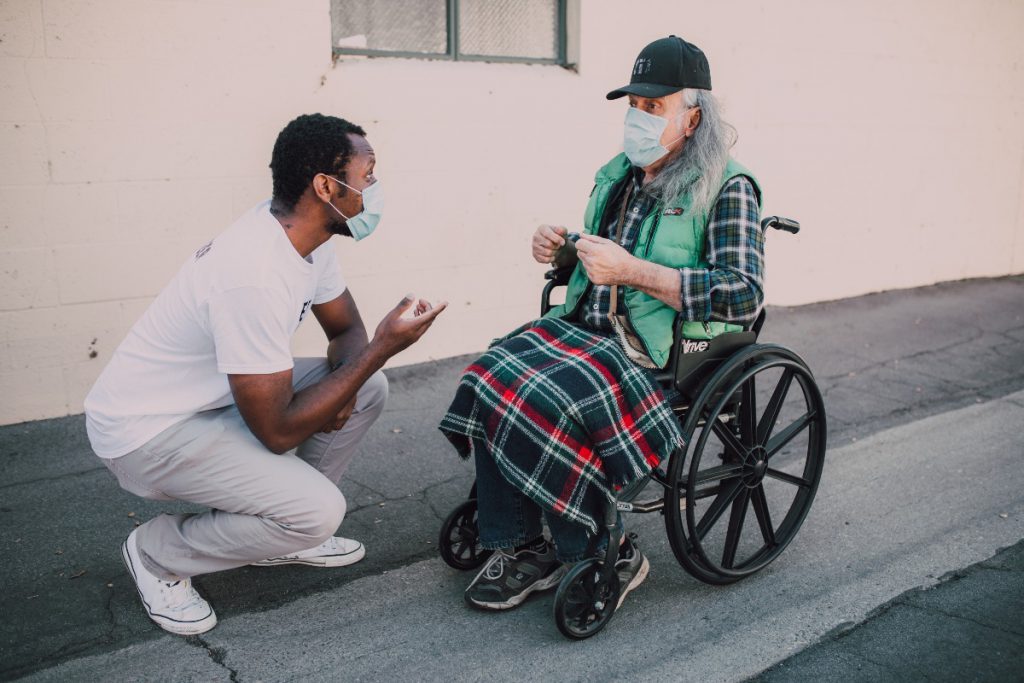
Kindness, even the simplest acts of kindness, creates a chain reaction in the brains of both the giver and the receiver. Teaching teens in recovery about kindness creates powerful chain reactions of human connection. Helping them learn to both give and notice small acts of kindness in their lives helps them to connect with others in meaningful ways.
The Effect of Small Acts of Kindness on the Brain
That being kind to others makes people happy is something that intuitively makes sense. Recently, however, scientists have been putting more time and research into how and why kindness makes people happy. For example, a 2019 study found that small acts of kindness—whether observed, general, or demonstrated personally to strangers or loved ones—had equally positive effects on the levels of happiness generated. The study also found that the more acts of kindness, the greater the happiness.
When small acts of kindness are performed, oxytocin and endorphins are released in the brain, and new neural connections are formed, according to a 2016 report. As a result, performing small acts of kindness can be self-reinforcing. These acts can create a habitual cycle of kindness that requires increasingly less effort to engage in. In fact, simply imagining acts of kindness can activate the emotional regulation system associated with soothing in the brain.
Kindness as a Healing Mechanism
The science behind compassionate care has been emphasized throughout medicine in recent years. Data suggests that healing with kindness produces far better results than simply offering healing. Similarly, kindness and prosocial behaviors have been shown to promote mental and physical health in individuals in relation to chronic stress. Even simply viewing media that displayed kindness in a healthcare setting demonstrated improvement in individual mood and improved satisfaction for caregivers and patients alike.
More specific to adolescents, a 2019 study found that teens with high levels of emotional distress who engaged in kindness and helping others had improved moods. This effect was highest in teens with higher depressive symptoms. The results seem to indicate that kindness helps fulfill the social and emotional needs of adolescents. This can have positive benefits for their overall mental health. Kindness is also a component of mindfulness-based therapy. This therapy is being used more commonly to treat depression, anxiety, and other mental health issues.
The Effect of Kindness on Giver vs. Receiver
The positive effects of giving small acts of kindness are well-documented. However, research is only beginning to demonstrate the power of kindness on the receivers. A study published this year highlighted the fact that the positive impact of kindness on those on the receiving end is even higher than for those giving the kindness. In fact, the study indicated that a lack of understanding of the positive effects small acts of kindness can bring to the receiver often inhibits people from giving more kindness.
Knowing the true power of kindness on those who receive it should inspire even more kind acts. Adolescents can learn to be more kind and give this gift to others, even if it also brings so many positive benefits for themselves.
The Power of Human Connection Small Acts of Kindness Can Bring
Prosocial behaviors involved in small acts of kindness can increase the human connection between the giver and the receiver. In addition to the increased happiness and the release of oxytocin and endorphins, there is a positive human connection created with kindness. This connection through shared positivity helps promote an increased sense of belonging.
When these connections are made, they help people feel valued as human beings. Most importantly for adolescents in recovery, creating positive human connections helps to build trust. For so many teens who have dealt with abuse or other trauma, restoring the ability to trust others is a powerful step in their healing process. Small acts of kindness can help to do just that, one small act of kindness at a time.
Helping Teens Connect in Meaningful Ways
When teens learn to show kindness to others, they create connections with others that can help them heal. Healing occurs in many areas, from improving moods to restoring trust in others. Those prosocial connections are deeper and more meaningful than other everyday interactions.
Likewise, teaching teens to recognize the small acts of kindness in their lives, even from family members, helps them to experience deeper, more meaningful connections as well. Recognizing kindness is then linked to gratitude, which has also shown positive effects for healing in recovery and mental health. Making these connections through kindness creates a chain reaction of positivity and human connection that is healing for the giver, the receiver, and even those observing the kindness. Kindness helps all of us connect in deeper, more meaningful ways.
Scientific research is constantly proving the power of even small acts of kindness in healing and human connection. From the effects that kindness has on the brain to the power that it has on human connection, kindness can help adolescents in their healing process. Sustain Recovery understands the power of human connection and restoring trust in teens with addiction and mental health diagnoses. Our Irvine, California, facility helps adolescents address their deeper underlying problems in order to help them recover from substance abuse. We offer structure and accountability in an environment that is committed to helping teens heal. Contact us today at (949) 407-9052 to find out if our extended residential program is right for your client.






